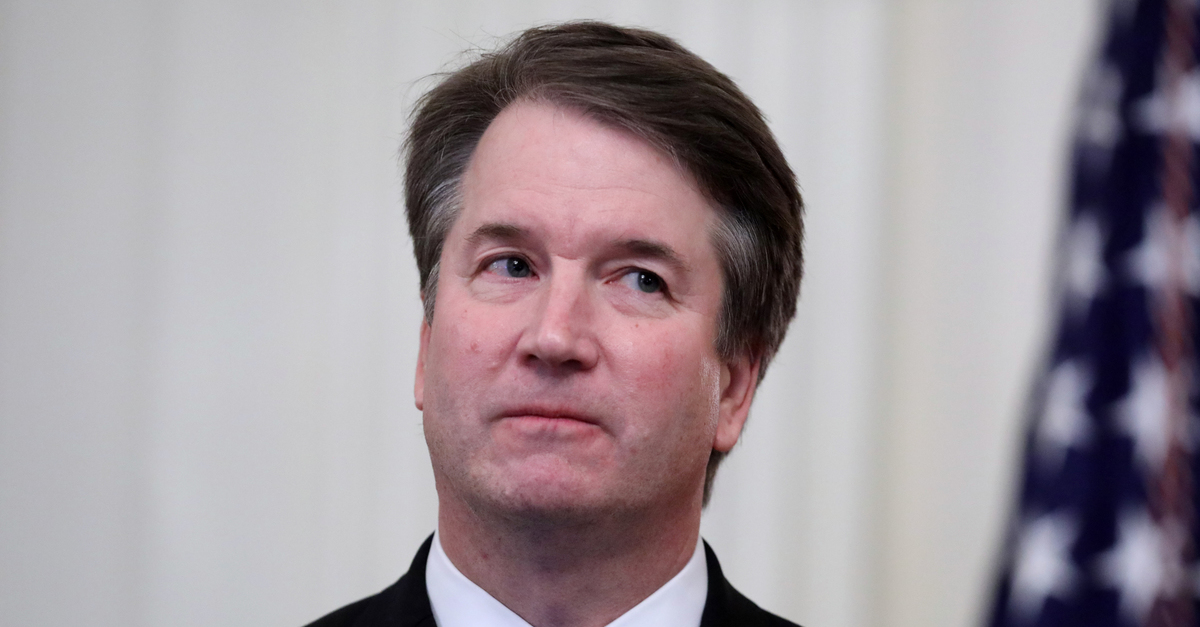
The U.S. Supreme Court said in an order on Monday that they will not hear two cases involving a New Jersey law that prohibits government historic preservation funds from being used toward religious buildings like churches, mosques, or synagogues. Justice Brett Kavanaugh wrote a five-page statement saying that he agrees with this decision, even though he’s not happy about the situation.
During his confirmation hearing, Kavanaugh was grilled over his ability to base his judicial decisions on the law and not his personal preferences. His statement on Monday appears to do just that.
The cases, Morris County Board of Chosen Freeholders v. Freedom From Religion Foundation and The Presbyterian Church in Morristown v. Freedom From Religion Foundation, present a situation in New Jersey that Kavanaugh describes as being “in serious tension with this Court’s religious equality precedents.” They deal with a program where the Morris County government gives historical preservation funds to local buildings like libraries, and museums, but now cannot do the same for religious buildings because of a law that was upheld by a state court.
His statement, which was joined by conservative Justices Samuel Alito and Neil Gorsuch, goes on to discuss past opinions that make clear that government action that discriminates against religion in general—and not just a particular religion—is in violation of the Free Exercise Clause and of the First Amendment.
“Under the Constitution, the government may not discriminate against religion generally or against particular religious denominations,” he wrote, citing 1982’s Larsen v. Valente.
He then brings up a similar case from 2017 where Missouri denied state funding for a playground at a religious private school. The Supreme Court ruled in Trinity Lutheran Church of Columbia, Inc. v. Comer that this was unconstitutional, since secular private schools were granted funds for their playgrounds.
“In this case, New Jersey’s ‘No religious organizations need apply’ for historic preservation grants appears similar to, for example, Missouri’s ‘No religious schools need apply’ for school playground grants,” Kavanaugh said.
All this being said, it would seem that the conservative Kavanaugh would be railing against the Court’s decision not to give the New Jersey case a look so they can reverse the lower court’s decision and let religious buildings receive the same grants as other buildings, right?
Wrong.
Despite acknowledging that the New Jersey law sure looks unconstitutional, Kavanaugh doesn’t believe that this particular case is appropriate for SCOTUS’ involvement.
“At some point, this Court will need to decide whether governments that distribute historic preservation funds may deny funds to religious organizations simply because the organizations are religious,” he says.
Just not this time.
Kavanaugh points out that there are some facts in the New Jersey cases that “are not entirely clear,” when it comes to the types of buildings that are allowed to get state money. He also explains that the Trinity Lutheran case, decided in 2017, hasn’t resulted in enough case law that would weigh in on how that decision should impact historical preservation grants.
He concludes by hammering home the point that decisions on nuanced legal issues are separate from personal views—even views on larger legal principles.
“As always, a denial of certiorari does not imply agreement or disagreement with the decision of the relevant federal court of appeals or state supreme court,” he writes. “In my view, prohibiting historic preservation grants to religious organizations simply because the organizations are religious would raise serious questions under this Court’s precedents and the Constitution’s fundamental guarantee of equality.”
Basically, Kavanaugh is showing that—despite what Senate Democrats continued to imply during confirmation hearings for him and other conservatives—so called “right-wing” justices can base their decisions on what the law requires, and not on how they feel.
[Image via Chip Somodevilla/Getty Images]